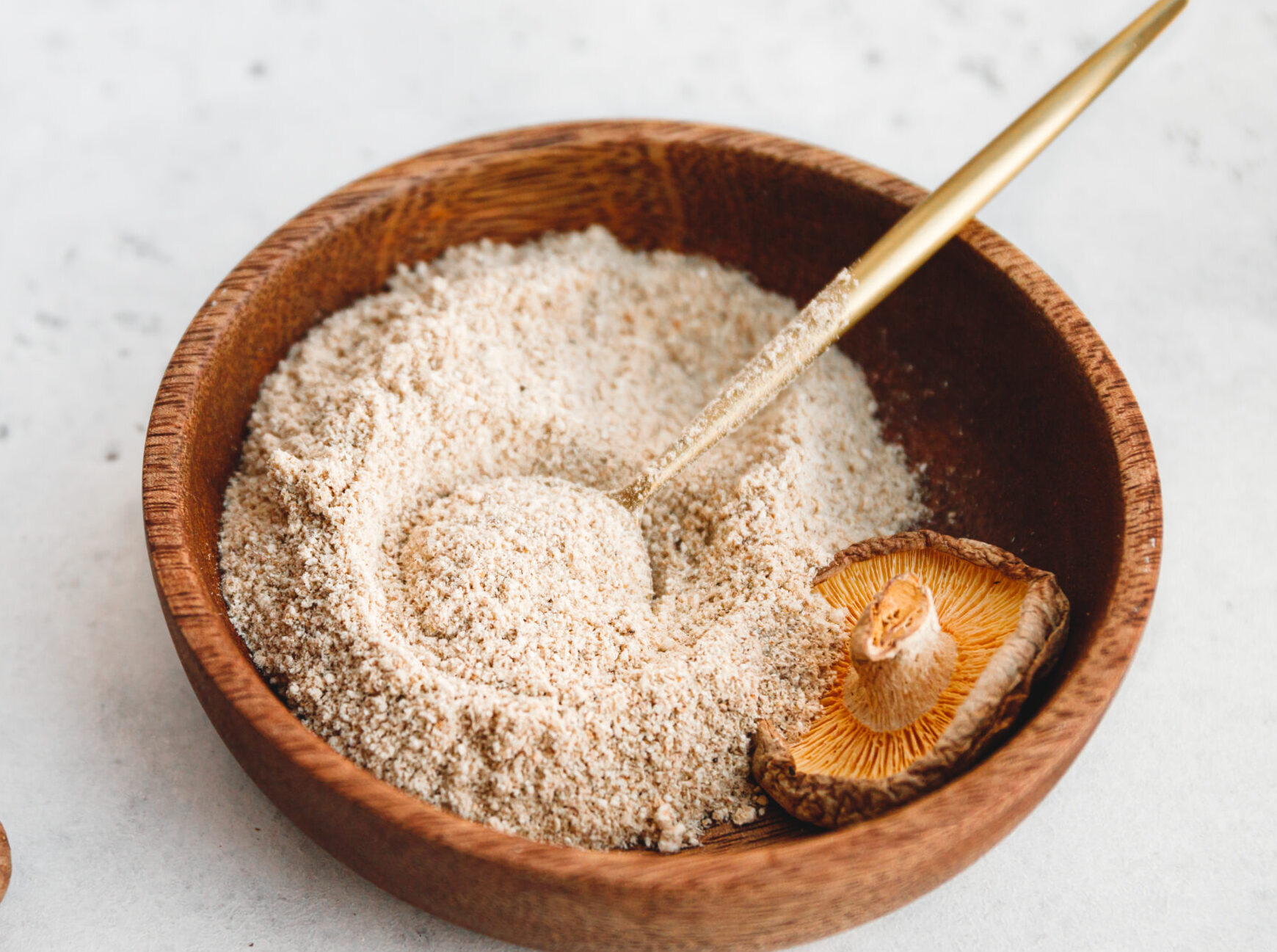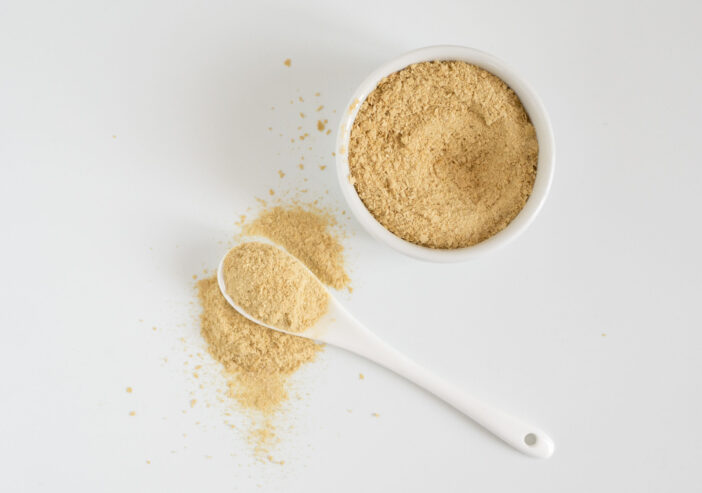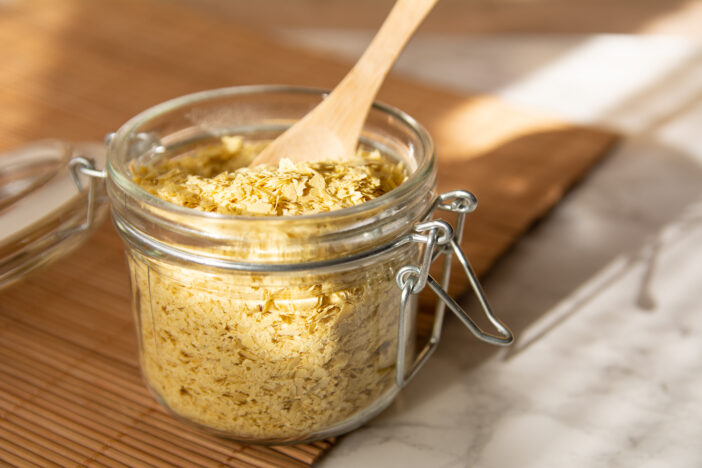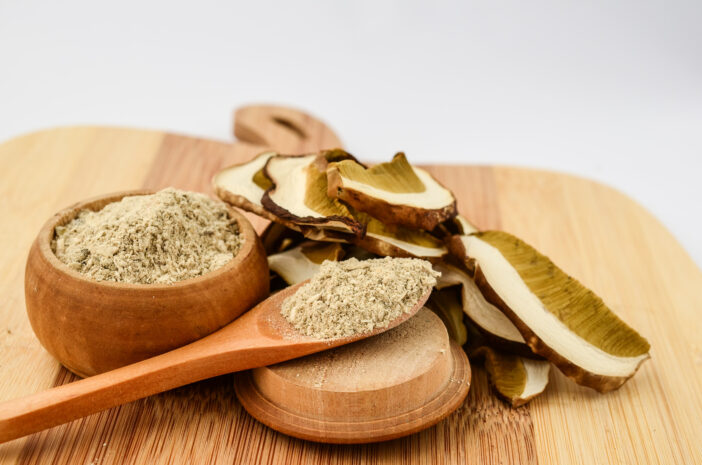5 Benefits of Fungi Protein for a Healthier and More Sustainable Diet
Fungi protein offers a sustainable, low-fat protein source with essential amino acids, fiber, and minerals. Its production has environmental benefits, and it supports gut health, immune system, and heart health. The future trends focus on innovations in production and addressing consumer acceptance to make fungi protein a staple in diets worldwide.

In the quest for sustainable and healthy dietary options, fungi protein emerges as a groundbreaking alternative to traditional animal and plant-based proteins. With its low-fat content, environmental benefits, and growing acceptance, understanding what fungi protein is and its potential can revolutionize the way you think about food.
In the realm of alternative proteins, fungi protein stands out as a sustainable superstar, offering numerous health and environmental benefits. But how does it work? Fungi, including yeasts, molds, and mushrooms, are cultivated and fermented to produce a dense network of mycelium rich in protein. This process requires minimal land, water, and energy compared to traditional livestock farming, making it highly efficient and eco-friendly.
What makes fungi protein special? It contains all the essential amino acids necessary for optimal bodily function, along with dietary fibers, vitamins, and minerals. Additionally, it boasts low fat and cholesterol levels, with mostly unsaturated fats that contribute to a healthier lipid profile. While fungi proteins contain nucleic acids like RNA, processing methods ensure their safety for consumption.
Ready to incorporate fungi protein into your diet? Start with commercially available fungi-based meat alternatives or explore recipes featuring fungal ingredients. It’s a small step toward a healthier lifestyle and a significant leap toward sustainability.
Disclosure: As an Amazon Associate, this site earns from qualifying purchases. Thank you!
The Nutritional Value of Fungi Protein

Ever thought of fungi protein as a nutritional powerhouse? Let’s dive into its key benefits:
- Complete Protein Source: Fungi protein contains all essential amino acids (EAAs), vital for muscle development, energy production, and metabolic processes. With 20-30% crude protein content, it ensures a complete and balanced protein intake.
- Micronutrient Rich: Fungi are packed with vitamins, especially B vitamins, crucial for energy metabolism and cell health. They also provide essential minerals like selenium, potassium, and copper, supporting immunity and heart health.
- Heart-Healthy and Low Fat: Fungi protein boasts low fat and zero cholesterol, making it ideal for maintaining healthy cholesterol levels. Its high fiber content promotes satiety, aids digestion, and regulates bowel movements.
- Optimal Nutrient Absorption: Thanks to the unique structure of fungal cells, nutrients are readily available and easily absorbed, maximizing their nutritional benefits.
Incorporating fungi protein into your diet can enhance satiety, promote gut health, and boost immunity. Whether in meat alternatives or protein powders, fungi protein offers a wealth of health advantages, paving the way for a healthier, more sustainable lifestyle.
Production and Extraction Methods
From spore to store, the production and extraction methods of fungi protein are vital for delivering this sustainable nutrient powerhouse to your plate. Let’s explore how fungi protein becomes accessible for your dietary needs.
Commercial Production Techniques
- Fermentation: Fungi are cultivated in controlled environments where they’re fed simple sugars, leading to the production of mycelium, dense in protein.
- Solid State Fermentation (SSF): Fungi grow on solid materials like grains or agricultural byproducts, mimicking their natural habitat with minimal water use.
- Submerged Fermentation (SmF): Fungi thrive in a liquid nutrient bath, ideal for producing specific enzymes or proteins in large quantities.
Extraction Processes for Fungi Protein
- Harvesting and Drying: Mycelium is harvested, separated from its growth medium, and dried to reduce moisture content.
- Cell Disruption: Physical techniques like mechanical milling or ultrasonication break down cell walls, releasing protein-rich contents.
Environmental Benefits of Choosing Fungi Protein

Making the switch to fungi protein isn’t just beneficial for your health; it’s a significant win for the environment. Here’s why:
- Minimal Resource Usage: Fungi protein production requires far less land and water compared to traditional animal farming. By utilizing substrates that would otherwise go to waste, fungi contribute to resource conservation and waste reduction.
- Reduced Greenhouse Gas Emissions: Unlike livestock farming, fungi protein production generates significantly fewer greenhouse gases. Studies show that transitioning to fungi-based protein sources can drastically lower your carbon footprint, making it a sustainable choice for combating climate change.
By choosing fungi protein, you’re not only making a delicious and nutritious dietary choice but also contributing to a healthier planet. So, next time you’re shopping for protein, consider the environmental impact and opt for fungi protein to make a positive difference.
The Versatile Applications of Fungi Protein
As we dive deeper into the world of sustainable food sources, the spotlight often lands on one particularly remarkable candidate: fungi protein. But what makes fungi protein stand out in the crowded field of alternative proteins? Let’s explore its versatile applications that are reshaping how we think about food and agriculture.
Use in Food Products
Have you ever wondered how your diet could benefit from high-quality, sustainable protein sources without relying on traditional livestock farming? Enter fungi protein, a powerhouse ingredient making waves in the food industry for its versatility and nutritional benefits. Here’s how it’s being used:
- Meat Alternatives: Fungi protein’s ability to mimic meat’s texture has led to the development of delicious, plant-based options like sausages, burgers, and chicken patties. Its unique fibrous structure allows for a mouthfeel remarkably similar to that of meat, making it a favorite among vegetarians and meat-eaters alike.
- Dairy-Free Products: The neutral flavor profile of certain fungi, such as those used by Nature’s Fynd, is a game-changer for creating vegan cream cheese, yogurts, and other dairy substitutes. These products not only cater to those with dairy intolerances or ethical concerns but also offer a sustainable alternative with a lower environmental footprint.
- Nutritional Supplements: Recognizing the rich amino acid profile of fungi protein, it’s increasingly found in protein powders and health bars. Offering more than just muscle repair, these fungi-based supplements provide a broad spectrum of vitamins and minerals essential for overall health.
Ever thought your morning smoothie or barbecue grill could contribute to environmental sustainability? With fungi protein, every bite is a step towards a greener planet.
Potential in Space Agriculture
Imagine a future where astronauts are growing their own food in the vastness of space. Sounds like science fiction, right? Yet, this could soon be a reality, thanks to fungi protein. Here’s why fungi are perfectly suited for extraterrestrial farming:
- Efficient Growth: Fungi require minimal resources to grow, making them ideal for space missions where every ounce of weight and every drop of water counts. Their ability to thrive in controlled environments with limited input aligns perfectly with the constraints of space habitats.
- Nutritional Density: In the harsh conditions of space, maintaining astronauts’ health is paramount. Fungi protein offers a compact, nutrient-dense food source that can support human health far from Earth, providing essential amino acids, vitamins, and minerals.
- Adaptability: Researchers are exploring the cultivation of fungi under microgravity conditions, with promising results. Fungi’s resilience and adaptability to different environments could make it a staple in the diet of spacefarers, delivering fresh, tasty, and nutritious food options beyond our planet.
Health and Dietary Benefits

Exploring the myriad health advantages of fungi protein? You’re in the right place. Fungi protein, with its rich nutritional profile, is becoming a superstar in the health and wellness world. Now, let’s dive into some of the incredible benefits this remarkable protein source offers.
Fungi Protein and Gut Health
Ever wondered why your gut sometimes feels like a battleground? The answer often lies in the balance of your gut flora. Enter fungi protein, a knight in shining armor for your gut health. Its high fiber content, primarily from the chitin in the cell walls of fungi, acts like a prebiotic, feeding the good bacteria in your gut. You’re not just what you eat, but what your gut bacteria eat, and they love this stuff. Imagine it as quality compost for a flourishing garden, ensuring your gut is a haven for beneficial microbes. This can lead to improved digestion, fewer digestive issues, and, importantly, a stronger immune system.
Immune System Support
Speaking of immune systems, how does bolstering your body’s defense sound? Fungi protein is loaded with beta-glucans, a type of fiber with notable immune-boosting properties. These compounds are like the alarm system of your body, ensuring your immune cells are vigilant and ready. You know the feeling of walking into a room and flipping the light switch on? That’s essentially what beta-glucans do for your immune system – they keep the lights on and the intruders out. By incorporating fungi protein into your diet, you’re effectively giving your immune system the tools it needs to protect you from pathogens and diseases.
Regulation of Lipid and Cholesterol Levels
If managing your cholesterol feels like an uphill battle, fungi protein could be the ally you’re looking for. Its inherent qualities can help regulate blood lipid and cholesterol levels, steering you clear of cardiovascular issues. Think of your bloodstream as roads within a city. High cholesterol levels are like traffic jams, obstructing smooth flow and functioning. Fungi protein helps to clear these roads, ensuring a free flow of traffic that is your blood, reducing risk factors associated with heart disease. By incorporating fungi protein into your diet, you could see improvements in your blood lipid profiles, akin to a well-traffic-managed metropolis, leading to a healthier heart and vascular system.
By exploring the benefits of fungi protein, you’re taking a step towards a healthier you. Whether you’re aiming to improve your gut health, boost your immune system, or regulate your cholesterol levels, fungi protein is a versatile and potent nutrition source. Why not give it a try and see the benefits for yourself?
Future Trends and Challenges in Fungi Protein Research
As fungi protein gains traction as a sustainable alternative, the future promises exciting innovations and solutions to overcome hurdles:
Innovations in Production
- Biotechnological advancements like CRISPR and precision fermentation are enhancing yield, nutrition, and taste.
- Closed-loop systems utilize waste as feedstock, promoting resource efficiency and circular economies.
Addressing Challenges and Consumer Acceptance
- Advanced monitoring ensures product quality and safety during fermentation.
- Educational campaigns aim to increase consumer acceptance by highlighting health benefits and culinary versatility.
- Chefs and food technologists experiment with fungi protein to create appealing textures and flavors.
- Collaboration with policymakers is essential for establishing clear regulations and standards for fungi protein products.
The future of fungi protein research is marked by a shift towards innovation and acceptance, offering a promising glimpse into sustainable food solutions.
In the video, The Good Food Institute –
The Good Food Institute
- Dr. Josephine Wee’s Background: Assistant Professor in the Department of Food Science at Penn State since 2018, with expertise in alternative proteins and a focus on fungal research.
- Research Focus: Utilizing genomics and molecular biology to explore fungi’s role in food safety, quality, and sustainability, particularly in cultivating meat using fungal mycelium as scaffolding material.
- Historical Use of Fungi: Fungi, including molds and mushrooms, have a long history of safe use in food production, with applications ranging from fermentation to the production of single-cell proteins.
- The potential of Microbial Fermentation: Dr. Wee highlights the untapped potential of microbial fermentation and fungi as production platforms for the next generation of alternative protein innovations.
- Acknowledgment to Good Food Institute (GFI): Dr. Wee acknowledges GFI’s support in providing an accessible platform for discussing advancements in alternative proteins, emphasizing inclusivity and collaboration.
- Personal Background: Originating from Malaysia, Dr. Wee pursued her education in food science and environmental toxicology, including postdoctoral work in yeast evolutionary biology at Cornell University.
- Scope of Research: Dr. Wee’s team at Penn State focuses on studying various types of fungi, from macroscopic to microscopic, using genomic and molecular approaches to understand genotype-phenotype associations.
- Genetic Variability in Fungi: Dr. Wee discusses genetic differences among fungi species and how they influence phenotypic traits, such as fermentation capabilities, toxin production, and pathogenicity.
- Journey to Alternative Proteins: Dr. Wee shares her journey into alternative proteins, sparked by a conversation about the potential of fungi as future foods and further fueled by GFI’s reports on fermentation-derived proteins.
- Future Directions and Collaboration: The presentation outlines future research directions, including controlling protein and metabolite synthesis in fungi, exploring non-Saccharomyces yeast for flavor production, and soliciting collaboration opportunities within the GFI community.





